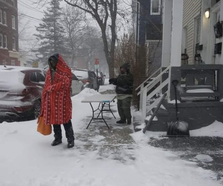 This is both blunt and transparent . . . Luke 18:22, a verse in this Sunday's Sermon text . . . “When Jesus heard this, he said to him, ‘One thing you still lack. Sell all that you have and distribute to the poor, and you will have treasure in heaven; and come, follow me.’” In a few seconds, after the rich ruler walks away “sadly,” Jesus then says: “How difficult it is for those who have wealth to enter the kingdom of God! For it is easier for a camel to go through the eye of a needle than for a rich person to enter the kingdom of God.” There is no doubt this is to be applied rather broadly and not to be rationalize, “Well, this was to one person and God doesn't call every rich person to do this,” for the disciples understood it to apply to all rich people, “then who can be saved then?” Those who typically have the authority to interpret texts like this one are from among those with elevated status in the social structures, i.e., those who rule and have wealth—you can see the conflict of interest here. I do. I feel that conflict myself. I am not exempt from “spiritualizing” or looking for exemptions for this text. We all scramble to exempt ourselves, somehow, from this--no matter the size of our paycheck and bank accounts. Me, too. I have always been rather plagued by this text. But after 40+ years of following Jesus (and this is a “follow Me” text, cf. 18:22d), I wonder if we are so attached to this world—as the Rich Mullins song says, the stuff of earth competes for our allegiance—that we are not free to actually follow Jesus in the way the Gospels teach us? I confess, this week’s sermon text rattles me. And more so because it’s a feast week! Thanksgiving. And it’s cold out. There are homeless surrounding me. And I live amid scarcity.
0 Comments
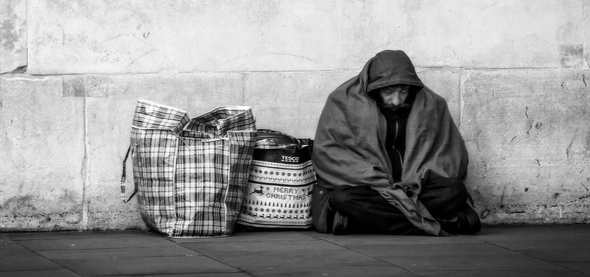 While the Pharisees and scribes grumbled that Jesus was receiving tax collectors and the marginal, the uneducated, outcasts living in “the streets and lanes of the city,” and “the poor and crippled and blind and lame” (14:21), eating with them, Jesus asked them a question:
The question sets up an expected answer: “No, no-one would do that!” Such a decision puts the 99 at risk (stop thinking Jesus means for us to assume the shepherd left the 99 well attended—that would spoil the story all together—not sure we are to assume nor fill in the blanks). Simply we have, you see,“Lost sheep happen.” Still, the angle Jesus shoots for is dangerously shocking: this rather well-off Shepherd (having 100 sheep would have indicated he leaned toward being a more wealthy Shepherd) goes and seeks his lost sheep, carries it home, and everyone rejoices. This is the counter to the grumbling of the Pharisees and scribes that Jesus was welcoming and eating with the likes of those strays from Galilee and the marginal he'd been picking up while on his way to Jerusalem. While it is good to see the Shepherd as a picture of Jesus, this leaves the listener/reader with nothing to do but contemplate how much Jesus loves him. A good thing and important, sure, but that’s not Luke’s point. This is a counter to the Pharisees and scribes, which should indicate what we have here is a counter-intuitive correction to the church’s proclivity toward doing exactly what the Pharisees and scribes were doing: neglecting the poor and marginal and socially unacceptable, whether it be to affirm the cultural and socially tiered-hierarchies (both church and outside the church) and/or to not be so unwelcoming of such among them as a church and/or creating and maintaining institutional systems that affirms and sustains the haves/have-nots at church (cf. the problem in James). This is exactly what the previous Banquet parable was about in Luke 14. Additionally, the interlude on discipleship just prior (14:25-33) instructs us that discipleship is following Jesus, and thus we have our marching orders here in this (and the next two) parables of Luke 15.
 A story has it that a young man had felt a call to go work with Mother Teresa in Calcutta, India. He was ready to begin. Here is the first conversation this young man had with Mother Teresa upon his arrival. Mother Teresa: “Why have you come here?” Young man: “I have come to help take care of the poor and the needy.” Mother Teresa: “Young man, wrong reason. Go home.” Young man: “What do you mean wrong reason?” Mother Teresa: “Young man, if you have not come here to love Jesus you will fry. But, if you have come here to love Jesus, you will find him dressed in the distressing disguise of the poor . . . as you start to work with the poor and the needy, you will find Jesus in a new way–you will find him in the distressing disguise of the poor.” 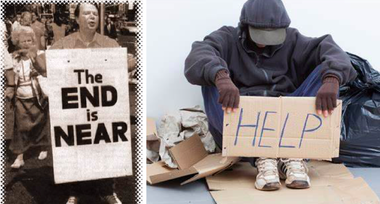 We’ve come to an “end time” text in Matthew, chapter 24. Too many Christians, preachers, and modern, self-appointed “prophets” mine this chapter in search for how they may “discern” the signs so they can announce “the end is near” (usually accompanied by some action that is needed, everything from send money, give more money, stop letting, go vote . . .) Even though we have 2000+ years of everyone getting it wrong, plenty still predict and announce. When I was pastoring in Pennsylvania in 1987, I received a free book in the mail, 88 Reasons Why Jesus is Coming Back in ’88. Well, Jesus didn’t. So the next year, I received a new book from the same author entitled, 89 Reasons Why We Were Wrong in '88 and Why Jesus is Coming Back in ’89. You can’t make this stuff up. Well, here we are, it’s 2019. And, we still have sign pointer-outers and prophetic manipulators and, even, innocent, well meaning Christians seeking signs and pointing out why “we’re living in the end times.” If you skim through Matthew 24 and Matthew 25 (which should be like one chapter together) you will encounter the twin themes of “it’s not the end” and “you don’t know when the end is coming so be ready.” So, perhaps we should take this to heart and listen better to Jesus. Being ready isn’t about discerning the times and looking for signs, but enduring to the end. “You see these sign, endure to the end (since you don't know when it’s the end end).” What’s truly interesting, the parables that follow the “signs” section of Matthew 24 all push the reader toward being ready because you don’t know when it’s the end end. There are some important parallels we gloss over, or ignore, or don’t take into account, namely each of the parables–the faithful servant (24:45-51), the ten virgins (25:1-13), and the “faithful/unfaithful investors” (25:14-30) and the “sheep and the goats” (25:31-46)–all end in pretty harsh judgement . . . Matthew intends some parallelism here . . . they are all teaching basically the same thing. So, this is important to grasp. While waiting and being ready and seeking to endure, the Christian community is to be characterized by . . . go ahead, read Matthew 25:31-46 . . . you got it . . . by feeding the hungry, giving drink to the thirsty, by welcoming the stranger (don’t think US Border, that, too, is a misdirection; think your home, your church, your neighborhood, your circle of friends and acquaintances), by clothing the naked, and by visiting the sick and imprisoned. Matthew connects the “end times” teaching and the “sheep and the goats” judgment, so we should as well. Church is expected (a church in a place, in a neighborhood is expected) to live (together) in such a way as to create space (i.e., habits, lifestyles, life) to make it possible for the hungry to be fed and the stranger welcomed and the sick and imprisoned visited for the “end” is nigh in that Christ Jesus comes to us in the poor, the hungry and thirsty, the naked, the sick, and the imprisoned. So, Christian, stop seeking signs. Endure ’till He comes by doing what Jesus has been doing (in Matthew since chapter 4, i.e., ministering to the poor, the outcast, the unclean, the marginalized, et al.). Stop pointing out signs (“Oh, it must be the end, see how bad it’s getting!” or “Look what’s happening with that country . . . or those politicians . . . or those people!”). Just stop it. And, stop listening to it. It’s distracting you from true endurance, which means actively helping, serving, caring for the poor, the outcast, the marginal, the unclean. 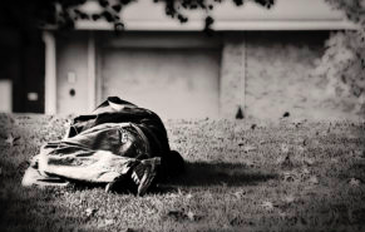 Furthermore, there is an interesting twist afoot when we consider the thread of “second coming sign” texts in Matthew 24 and the juxtaposition of the three Matthew 24-25 parables and the parable of the sheep and the goats: The three parables, along with the noted (above) harsh conclusions, are also stories about a Master delayed (χρονίζω, chronizō) and who comes (24:48-50), a bridegroom delayed (χρονίζω, chronizō) and who comes (25:5, 10), and a Master who goes on a journey, “yet after a long time” (μετὰ δὲ πολὺν χρόνον, meta de polun chronon)* comes (25:19). Then in the sheep and the goals parable (25:31-46), we have the Son of Man (i.e., Jesus) who comes (25:31). Here, we have a slight nuance to the concept of “coming,” namely the “coming” judgment is based on the incidences of Jesus coming in the persons who are poor, neglected, under-resourced, unclean (i.e., hungry, thirsty, naked, homeless, sick, and imprisoned). Of course there is a final “coming” when Jesus, as the Son of Man judges and separates the sheep and the goats. Yet, this coming-judgment is based on what the people (i.e., Christians, at least outwardly) do and do not do to/for/with the Jesus who had come as someone hungry, thirty, naked, homeless, sick, or imprisoned: “Truly, I say to you, as you did it [or not did it] to one of the least of these my brothers, you did it [or not did it] to me” (cf. 25:40, 45). It seems clear, from the parallels in the parables and the juxtaposition of the coming-judgment of the sheep and the goats, that is, being ready, staying alert, staying woke while Jesus “delays” and being prepared for the final coming is repeating the same ministry that Jesus had illustrated (i.e., the fishing) in Matthew 4-23, that is healing and touching and feeding and caring for the poor, sick, and unclean. The true signs of His coming is the church among the poor, outcasts, marginalized, and unclean. Don’t be a goat (nope). Be a sheep. Be ready. Be prepared. Be truly woke . . . when Jesus comes to you as one of the least of these (or go to them, be among them), so that you may be ready when he comes as the Son of Man on that Day.
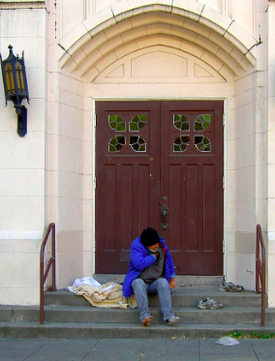 One of my heroes of the faith is A.B. Simpson, founder of the Christian and Missionary Alliance (1843-1919). Called to a rather prestigious NYCity church (a Presbyterian church!), he began to have a burden for ministry among the poor and street people. He'd preach on the street; street people converted; and, he brought them to church . . . was summarily disciplined and removed from the pulpit (on record, it was over his changed position regarding baptism, but there is no doubt as to the real reason was bringing those people into the paid-pews of our church). Having those street people (i.e., the bottom demographics of NYCity) enter Simpson's church was like the time Jesus took to turning-tables and whipping merchants who filled the temple court (probably Court of the Gentiles) and, then, the crowds of the poor, marginalized, sick, disabled came into the temple (assuming there was a place for them now that the merchants were chased out) . . . Jesus overturned the status quo and mis-use of the temple sacred space and the very crowd that was disallowed, then, came in . . . We often read past quick verses that give some context to the narrative. Matthew's account tells us immediately what happened after the table-turning: “And the blind and the lame came to him in the temple, and he healed them” (21:14). Matthew then tells us the temple leaders “were indignant” (v. 15). The Matthew 21 OT quote used to prophetically justify Jesus’ table-turning action was to remind Israel’s temple-leadership that God's temple was to be a house for ALL people (Matthew 21:13; cf. Isaiah 56:7). When we turn to that Isaiah 56 quote, we read in the very next verse: “The Lord God, who gathers the outcasts of Israel, declares, ‘I will gather yet others to him besides those already gathered’” (v. 8). And, this is exactly what happened in the over-turning-tables story in Matthew–in the very next verse: “And the blind and the lame came to him in the temple, and he healed them” (Matthew 21:14). If one pulls out the other likely OT reference to a “house of prayer for all people,” namely Jeremiah 7:11, there, too, we find in the context the marginal and bottom-demographics that have been left out, for we read in Jeremiah 7:5: “For if you truly amend your ways and your deeds, if you truly execute justice one with another, if you do not oppress the sojourner, the fatherless, or the widow . . .” (v. 5). Let's get this right: the over-turning-tables scene is about God’s people (more so, the visible ones that makes up both the truly elected and those who claim Christ but are not necessarily truly God’s people), the very temple (i.e., the place of God's dwelling and manifest presence--which was the temple in the OT and now the visible church, i.e., churches scattered throughout the earth) has barred the marginalized and placed barriers to the bottom-demographics from the temple/church sacred space. Like Jesus as he makes room for them in the temple, the significance of this Matthew 21 text is to apply to church (not in a general, universal church way--whatever that is--but, to the local church, my church, your church) by the intentional creating of room, restoring sacred space (i.e., literally NT table fellowship, however it looks today) for the bottom-demographics to be among us (or us among them, better, still). Or, we, too, may face Jesus’ over-turning-tables judgment.
patterns of church) and execute justice one with another (i.e., our neighbors) and not oppress the sojourner, the fatherless, or the widow . . . among church. This is not a State funded plan or program. This does not need to come from the Supreme Court or any federal law. This is church. Is it no wonder we hear a few lines later, in Matthew 21, Jesus would tell the temple-leadership who had a problem with the incoming bottom-demographics: “Truly, I say to you, the tax collectors and the prostitutes go into the kingdom of God before you.” This is an ecclesiological (aka a church) issue, the neglect of our poor and marginalized neighbors, and the giving of access to our fellowship so that they may have full access to the Father. We need to rethink church.
IV. Our Church Life should be an Invitation to Come to Jesus, take His Yoke, and You will Find Rest: We are to embody the invitation to Come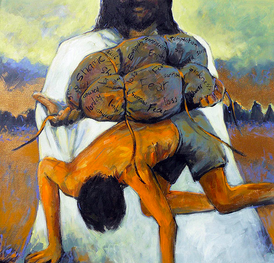 Our little Hill church puts itself into the heart of the community: at the Hill North Community Management Team, the Free Sidewalk Breakfast each Saturday, our Summer Park BBQ ministry; showing up to almost every community event, and my pastoral street counseling right out my front door. When John the Baptist was facing the end of his ministry (in Matthew 11), he told his own disciples to go ask Jesus if he was the One or should they look for another (was this for John or his disciples, I have my opinion on that, but it is surely for the church). How do they know Jesus is the One and there is none other to look for? Jesus asks them what they see (which implies action, demonstration, something happening): How do they know? ➥ the blind receive sight ➥ the lame walk ➥ lepers are cleansed ➥ the deaf hear ➥ the dead are raised up ➥ the poor have the gospel preached to them (Matthew 11:4-6) This is exactly what Jesus has been doing as his disciples followed him around. No doubt this is Matthew’s version of Luke’s draw on Isaiah 61, which promises that God’s Spirit would be on the Messiah to preach the gospel to the poor, to heal, to free and bring justice (Isaiah 61:1). This is the context in Matthew. This is exactly what Jesus is doing. This is what the temple and synagogue leadership miss, ignore, or are fighting against.They are still bothered for in Matthew 11:19 there is more accusation: . . . they say, ‘Look at him! A glutton and a drunkard, a friend of tax collectors and sinners!’ We end our thread in Matthew 11 where Jesus invites all who labor and are heavy laden to come. First, Jesus praises the Father that “all things have been handed over” to Him “and no one knows the Son except the Father, and no one knows the Father except the Son and anyone to whom the Son chooses to reveal him.” As Presbyterians, we identify with this divine election. Yet we forget that the means of grace to call the elect is given at the same time: 28Come to me, all who labor and are heavy laden, and I will give you rest. 29Take my yoke upon you, and learn from me, for I am gentle and lowly in heart, and you will find rest for your souls. 30 For my yoke is easy, and my burden is light.” Recently during a Hill Sunday sermon on Matthew 11, I asked my own congregation: “How do you think the young church, with nothing much to offer, no social or political power, possessing little resources—and life didn’t really get easier and better for early believers. They risked everything, and for most, life got harder. In the first 150 years after Pentecost, how did Christianity became the largest religious sect in and around the Roman Empire? How? They accepted all into their fellowship, this changed their households . . . street by street, village by village, table by table. It all changed where gathered-churches lived out “Come all who labor and are heavy laden.” The body of Christ, the local church, with Jesus our Head, ruling and reigning at the Father’s right hand, is His presence in the community, in the Hill community, in your community right here in Concord. We show them Jesus by who we are and what we do so that all who struggle and toil and are carrying burdens no one should carry alone (because they see) hear the invitation to Come to Jesus and take on His yoke and find rest. We are to embody the invitation to Come. We need to be refreshed in the gospel every time we gather because we need the power of the gospel in order to be the gospel in action. I might get everything else wrong about church planting . . . I might not even be very good at it, at least not good at what is expected . . . but one thing I will get right, by God’s grace, to help the CPC in The Hill flock understand and know what it means to follow Jesus around . . . Our church does this . . . even though we are a church in an under-resourced community, we spend ourselves on our community, attempting to associate with the lowly, the hurt, those who's lives are messing, unclean, spoiled, and forgotten. A church needs to be where crowds are (out in the ebb and flow of community life): this is why our small under-resourced church spends its time in the community, places where crowds show up. This is what it means to follow Jesus around and it is how others know that the kingdom of heaven has appeared. *This sermon was preached at Redeemer Presbyterian Church in Concord, MA on Sunday, May 19, 2019. The full sermon maybe downloaded as a PDF (here). An audio version is also be available >> Audio version Part I | Part II | Part III | Part IV
III. We demonstrate the presence of the Kingdom by sending Laborers into God’s Field to do what Jesus did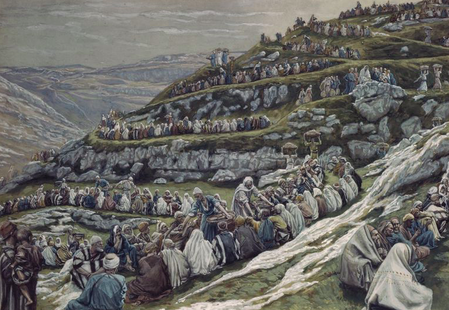 We have moved into the Hill. We relocated. (You all made this possible—thank you.) This is important: most pastors of churches in places like the Hill don’t live in the church’s neighborhood. Our moving into the Hill is a big deal—that’s what our neighbors tell, too. This is huge because there is a connection between the gospel and the community . . . between Shepherds and the community . . . between churches and the community. No wonder Jesus calls for laborers for the harvest. Another summary at the end of Matthew 9.
The reason for Jesus’ compassion is that they were sheep without a shepherd, harassed and dispirited. Jesus mixes his metaphors and says that there is a need for Shepherds for the Harvest is rip. “Harvest” is a great eschatological, end time word used throughout the Old Testament. “Harvest” means we are in the age of the appearance of the Kingdom of Heaven, but it also suggests that the end is near (of course eschatologically near, but also timely, the time to harvest is now; this gives us an urgent frame for the task). We should not be surprised that there is a relationship between this crowd of outsiders, unclean, lame, diseased, their condition (harassed and dispirited), and the absence of a Shepherd. People die without a shepherd. This is why we pray to the Lord of the Harvest to send forth laborers, send Shepherds into the field. I am humbled by how I am greeted on our apartment’s street: “Pastor.” “Rev.” “Park Pastor.” My favorite is “Hey, Preach.” But the one that honors me the most is when my neighbors call me, “Pastor of the Hill.” That’s crazy, right? I had just walked out of our apartment front door, heading to my car for a meeting, when I heard, “Pastor, come here.” This happens often. I do not carry cash on me. This is an important rule ministering where I pastor. Usually it is, “Do you have a dollar?” or “I need $8.50 for a bus ticket.” It’s hard, but I need to say, “No, I don’t.” Yet, I am a neighbor. And, a pastor (which most of our neighbors know) . . . so, sometimes I try to find other ways to help. This morning an older gentleman, who lives across the street (he admits his drinking problem and has a hard time walking because of his heart), pulled me in close and whispered to me, “Do you have a bag of groceries?” This is a tough one . . . I gave him my normal reply, but added, “When I get back, I’ll see what I can do to get you some food.” I located a $20 and found him still sitting where I left him. “Let’s go to the corner store and get you $20 bucks worth. No cigarettes though.” We walked slowly, stopping every 25 feet or so for him to catch his breath. Once inside the corner store . . . it was missional . . . a small crowd was there. Some teens shouted, “Hey, Pastor Chip!” I introduced myself to the others. Fist bumps all around. My older neighbor then surprised me when he started introducing me to his friends in the store, “This is my pastor.” Didn't expect that. And, he said it more than once. I held back tears. Of course, there are plenty of food resources, shelters, and food pantries in New Haven, which is my usual go-to reply. But, my presence in the neighborhood isn’t to be a social-worker or case-worker. This is a neighbor, someone I talk to regularly, and to whom I have given some street pastoral counseling—hard to just defer when, in some way, he’s one of my sheep (at least a street sheep). Plus, this man is abused by his boarding roommate, his food stamp-card taken regularly, and his landlord won’t do anything—and complaining just makes it harder on him. All this gentleman knows is his drinking, bad health, and sometimes Jesus shows up as his neighbor who also happens to be hispastor. These good people need a shepherd . . . It is no surprise that immediately after having compassion for the sheep that do not have a shepherd (9:36) and praying for the needed laborers to go harvest (9:337-38), Jesus appoints his twelve and commissions them (10:1-15). Although there is far more to this list (vv. 2-4) and their mission (vv. 5-15), I want to call attention to one thing very much related to our thread: Jesus instructs the twelve to proclaim that the Kingdom of Heaven is at hand (v. 7). Jesus calls the 12 disciples (10:1a) and gives them authority to do exactly what he has been doing (v. 1b)–exactly what they observed in following Jesus around as we have observed thus far. Now, they are to be fisher-followers by casting out demons and healing every disease and every affliction (10:1) and, so, they demonstrate that the kingdom of God is present (v. 7): Heal the sick, raise the dead, cleanse lepers, cast out demons (v. 8a). *This sermon was preached at Redeemer Presbyterian Church in Concord, MA on Sunday, May 19, 2019. The full sermon maybe downloaded as a PDF (here). An audio version is also be available >> Audio version Part I | Part II | Part III | Part IV
II. We reveal the appearance of the Kingdom of Heaven when we extend mercy to the (physically and socially) unclean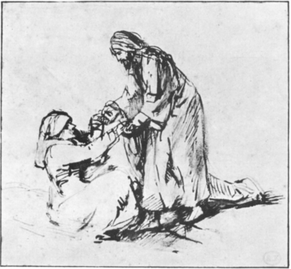 When Lisa and I had moved into our apartment, we were immediately recognized. More typically than not, it seems I can’t walk out my door without hearing, “Hey, Pastor, can I talk to you?” Or, “my friend here needs prayer.” I am immediately confronted with many that are unclean, unbathed, reek of smoke and alcohol; with those who aren’t very coherent; some who spent the night in the park, or the night selling themselves to support drug habits. This isn’t so far from the crowds whom Jesus encountered. I am confronted daily with the difference between the clean and the unclean, literally and socially. Now in Matthew 9:9, Jesus calls the tax-collector Matthew to follow him. Matthew represents half of the problem group of “tax collectors and sinners.” Immediately (v. 11) we hear many of Matthew’s tax collector buddies and sinners came and were reclining [at a supper meal] with Jesus and his disciples. This does not sit well with temple leadership. You have to remember in the social-location at that time, this all would have been very public, with neighbors and “the crowd” and the curious all peering in to the supper venue. Most likely a curious Pharisee was able to get the attention of a few disciples, pulling them out to ask: “Why does your teacher eat with tax collectors and sinners?” (v 11). Jesus overhears the question and takes the opportunity to teach everyone: “Those who are well have no need of a physician, but those who are sick. Go and learn what this means: ‘I desire mercy, and not sacrifice.’ For I came not to call the righteous, but sinners” (vv. 12-13). This begins a thread of accusations from the temple-leadership against Jesus—they don’t like the nature of Jesus’ fishing.The accusation from the Pharisees, “Why does your teacher eat with tax collectors and sinners” is juxtaposed to Jesus explaining his mission, “Those who are well have no need of a physician, but those who are sick.” So, we have those who do not need a physician, meaning the accusing Pharisees and those who are sick, meaning the “tax collectors and sinners.” This is the pattern here in Matthew. Let’s be fair to Matthew. We like to read what Jesus said as “everyone is like a tax collector and we’re all sinners.” No. No. No. Leveling and equalizing this robs us of the narrative impact: I think we can agree Jesus calls Matthew—a real life tax collector—and Matthew invites his friends and entourage to have a meal with Jesus. So here we have the context and the social group meant by “tax collectors and sinners.” Tax-collectors are not only the bottom of everyone’s hate list, they are traitors of the worse kind (Israelites in the employment of Caesar). Sinners are not simply “everyone” (you know because everyone sins—although true, this is not the reference). It is not as if Jesus said, “but those who realize they are sick.” Matthew has been pretty clear that the crowd he has been ministering to and who surrounds Him is made up of all the sick, those afflicted with various diseases and pains . . .(Matthew 4:23-24): these are most assuredly in the narrative the “sinners”: The sick, the mentally unstable, the deceased, the lame. Elsewhere in the gospels, we know that sinners are outsiders (e.g., Galileans), the uneducated, those in sympathy with the Empire, those ignorant of the Law, those outside the insiders of the temple leadership and their friends and families. This is why the Pharisees are offended by Jesus. This is why they do not like the nature of his fishing. Jesus says in the same breath (Matthew 9:13): “Go and learn what this means: ‘I desire mercy, and not sacrifice.’ For I came not to call the righteous, but sinners.”Again, we tend to read this as if Jesus said, “I desire you be saved by grace and not by any works because sacrifices can’t save you.” All good (of course), but misses Jesus’ point.
We are most glad, most thankful that Jesus choses mercy over sacrifice. Looking at the surrounding miracles stories and the summaries in Matthew: Jesus chooses mercy
These are not the things and situations one chooses in that culture and social classing, if one desired to be pure (the goal of the religious elite) or to be perceived as holy (again, the temple-leadership). No. Not at all. We are, however, as fisher-followers, to live out mercy by being in the proximity of the crowd, and thus touching the unclean (literally and socially). This is following Jesus around; and this is doing what Jesus did, here we are made fishers of men, demonstrating that the kingdom of heaven has appeared. *This sermon was preached at Redeemer Presbyterian Church in Concord, MA on Sunday, May 19, 2019. The full sermon maybe downloaded as a PDF (here). An audio version is also be available >> Audio version Part I | Part II | Part III | Part IV
“. . . but go rather to the lost sheep of the house of Israel” (Matthew 10:6)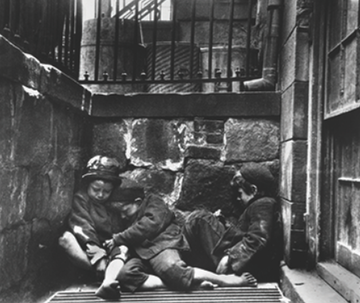 There is an interesting nuance to Jesus’ commission to the twelve in Matthew 10: When Jesus instructs them not to preach and heal and cast out demons among the Gentiles and Samaritans, he, however, specifically directs them to “the lost sheep of the house of Israel” (10:6). Again, this seems a verse we read (into) as another “everyone” text, that is “go to everyone in Israel for all of them are lost sheep.” Let’s reconsider: The word Jesus uses for “lost” here in 10:6 isn’t rendered at all very well by English translators. It is a specific word and no-where does it actually mean “lost” the way most of us modern Christians read the word and certainly doesn't carry the weight of a religious overtone of “lost” as in unsaved. The word is ἀπόλλυμι (apollymi, destroyed, banned is actually a good word). As this word is used (and rendered) elsewhere in the NT, a more consistent translation would have been “go rather to the destroyed sheep of the house of Israel.” This nuance changes how we read this charge to the twelve. If the English “banned” (a fair rendering as we shall see) is used, the resulting condition is nuanced to description, namely, of those “who have been shunned to destruction.” In fact, there is even more nuance to be heard from the word and the context. Previously in the immediate paragraph, Matthew depicts the scene in which Jesus has been ministering to the sick, outcast, marginal, disgraced, and poor (9:35). Jesus looks upon this crowd, Matthew narratives, telling us that He “he had compassion for them, because they were harassed and helpless, like sheep without a shepherd” (v. 36b). There is no doubt Jesus and Matthew are drawing upon an Ezekiel context where God interjects, “So they were scattered, because there was no shepherd” (Ezek 34:5). Yet, just before in 34:4, the people, i.e., the sheep, carry the same conceptual (sociological) description as does Matthew 9 and 10 regarding the condition of certain Israelites, i.e., “the lost sheep of Israel”:
Additionally, as you can see in the brackets above, the LXX OT (i.e., the Greek OT) uses the word ἀπόλλυμι (apollymi, destroyed), the same word use by Jesus in his instructions to the twelve in Matthew 10:6. English translators (virtually all) render this word in Ezekiel 34 and Matthew 10 as “lost” (as in “lost sheep”). In both Ezekiel and Matthew, this strong word gives a very subtle description of the people as vulnerable sheep who are “put out of the way entirely, abolished, destroyed.” Elsewhere in the New Testament, this word, ἀπόλλυμι (apollymi, destroyed), is used to give a rather dire description of a person's condition as a result of the actions or behaviors or attitudes of others.
The more accurate rendering of “lost” as destroyed (ruined, banned, shunned) helps to further see an actual sociological condition in the use of “lost sheep” to describe people or a person. In Luke for example, the treasured images of “lost sheep,” then, brings out (for significance and application) a rather different imagination regarding those that are in a condition of “lost.”
In Luke above, we can, then, see that the lost sheep are left alone, unprotected, vulnerable to the elements, lions and tigers and bears (literally), and is, thus, in the condition of “destroyed.” Jesus juxtaposes the restoration given by Zaccharus with His own mission to seek and to save the destroyed, the banned, the shunned. In this latter text, Zaccharus' own salvation is related to making people whole since he contributed to their condition of “ruin" (of being banned, shunned, destroyed). Now returning to the “the lost sheep of the house of Israel” (of Matthew 10:6), we offer a more sociological-rhetorical reading of the verse. While apollymi (“lost” as rendered in most English transitions) in v. 6 certainly is a strong word and “destroyed” is perfectly acceptable as a translation, we should also note that this is the word used to describe those who have been banned from synagogue. Also, the raw, wooden transliterated meaning of this word, apollymi, literally means “from let loose,” “let loose from,” “unloosed”). This is most certainly its meaning later when the local synagogue leadership in Caperneum made plans to “destory” (i.e., ban) the man whose withered hand Jesus had healed: “But the Pharisees went out and conspired against him, how to destroy [apollymi] him” (Matthew 12:14). [Whether the antecedent of “him” relates to the healed man or Jesus, the implication is to be banned from the synagogue.] Finally, given the nature of Jesus’ primary audiences thus far and Matthew’s summaries of His ministry (4:23-25; 9:35-36; et al), perhaps we should read “lost” as “banned sheep of the house of Israel,” specifically identifying the marginal, infirm, mentally unstable, demon-possessed, poor, outcast, and disabled sheep of the house of Israel—all whom would have been shunned away from synagogue life, not just figuratively speaking, but banned from the worshipping and religious life of Israel. Is it no wonder the temple-leadership did not like and was angered (or is that threatened) by Jesus' association with tax collectors and sinners? Leveling and equalizing the idea of “lost” in the Gospel narratives to simply a “we all are sinners in need of salvation” (albeit true, of course) places a barrier to faithful readings that put the poor and the marginalized of society in the purview of sound application in the life of the church (a church).
|
AuthorChip M. Anderson, advocate for biblical social action; pastor of an urban church plant in the Hill neighborhood of New Haven, CT; husband, father, author, former Greek & NT professor; and, 19 years involved with social action. Archives
February 2024
Categories
All
|
|||||||||||||||||||||||||||||||||||||||||||||||||||||||||||
Pages |
More Pages |
|
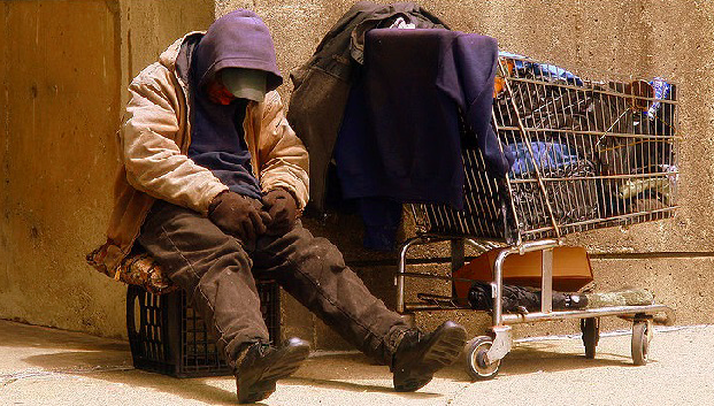
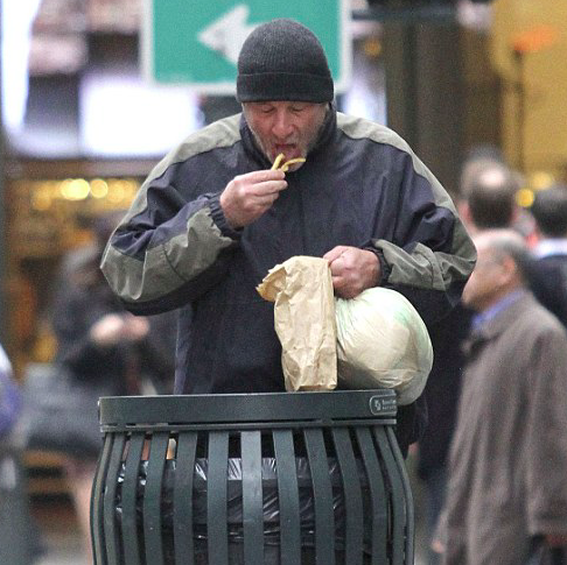
 RSS Feed
RSS Feed